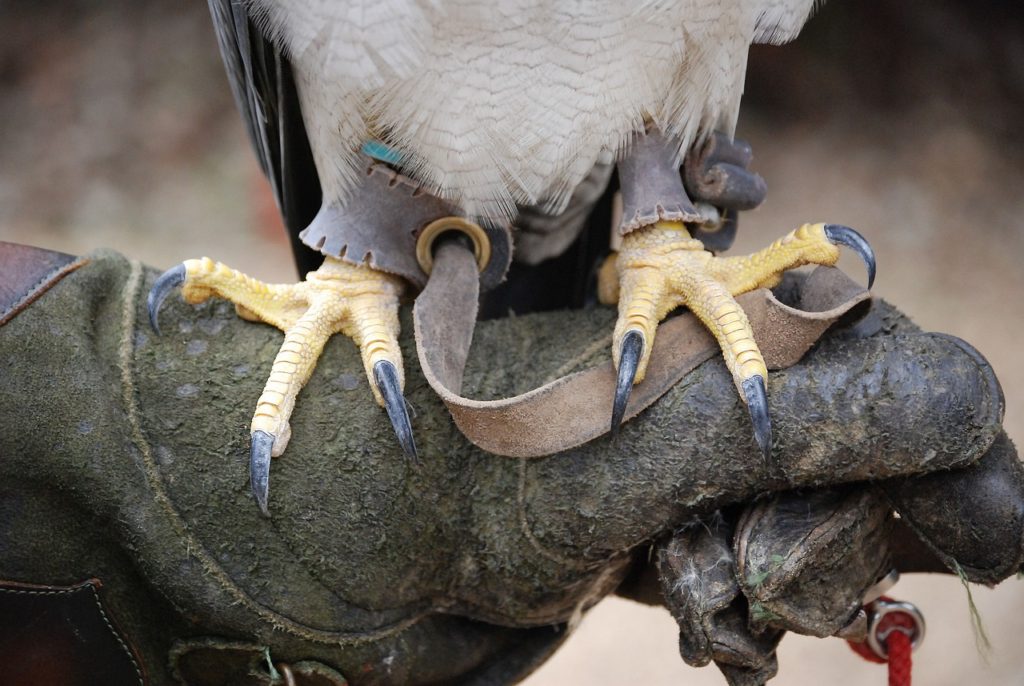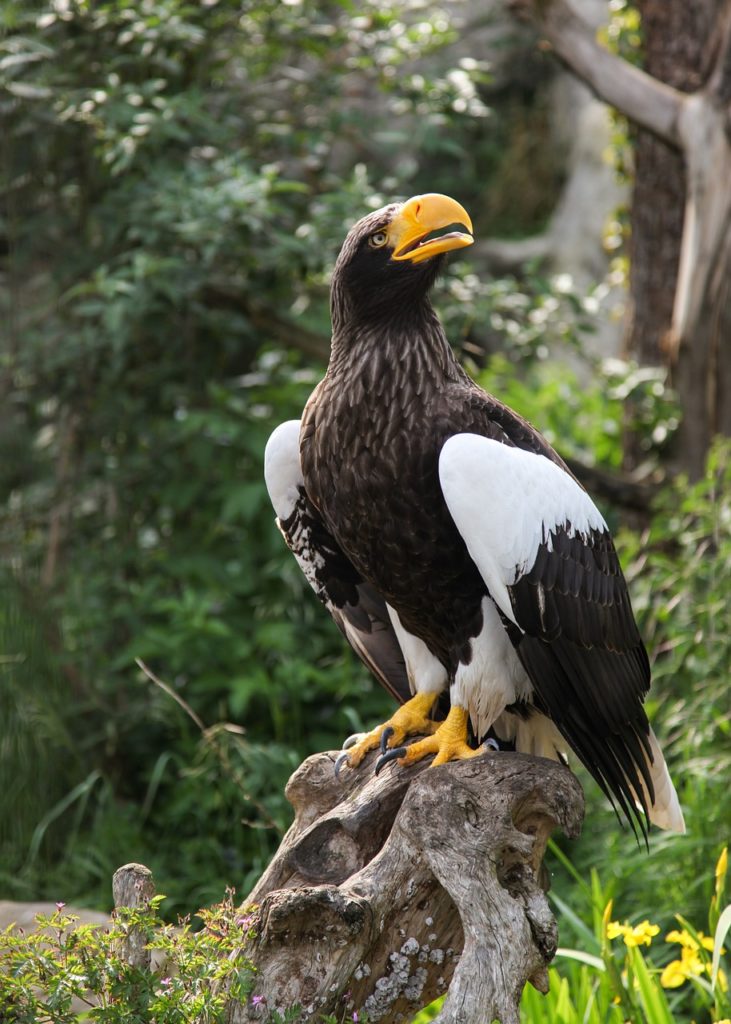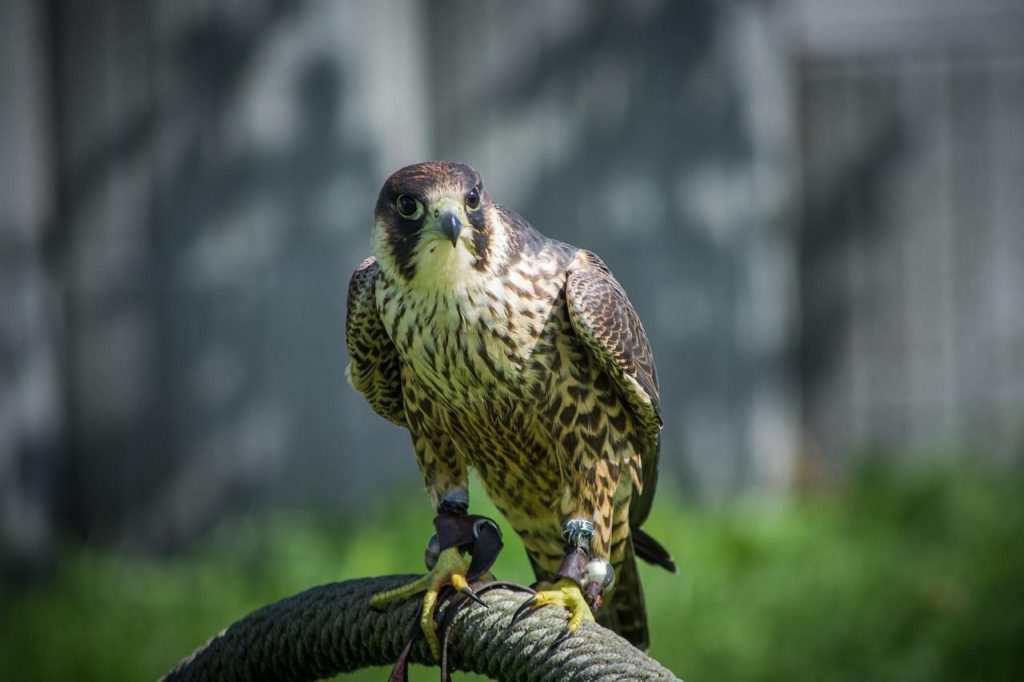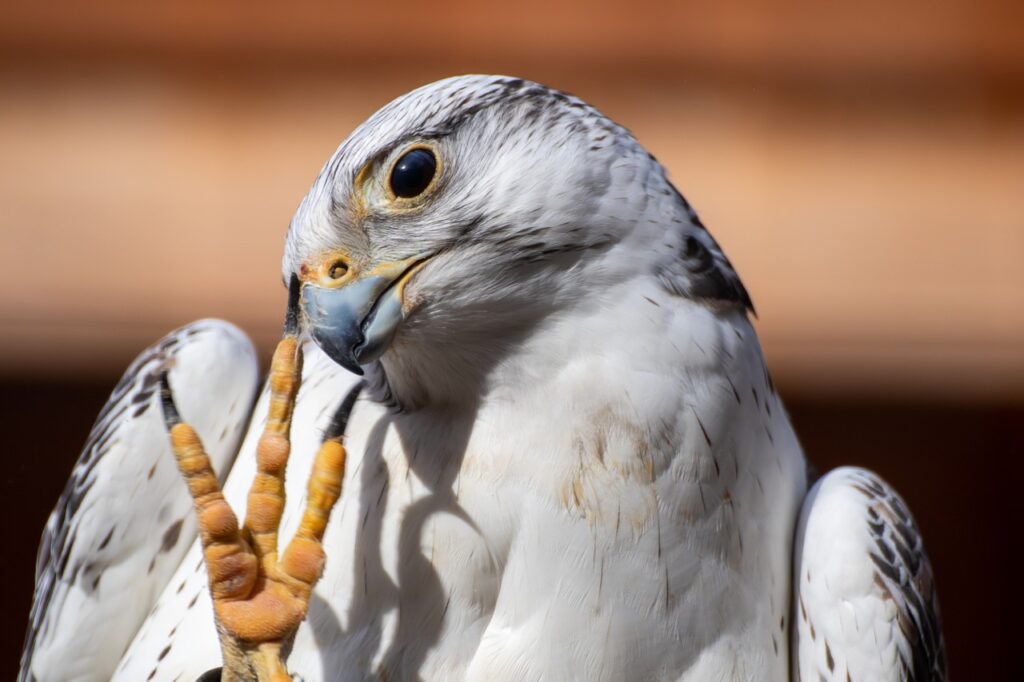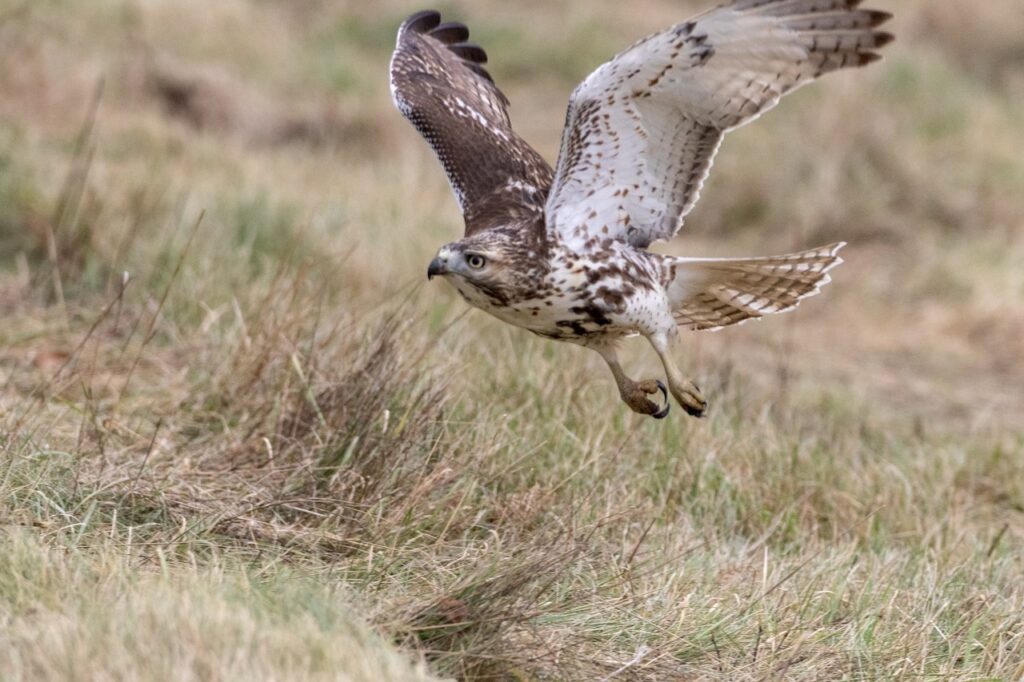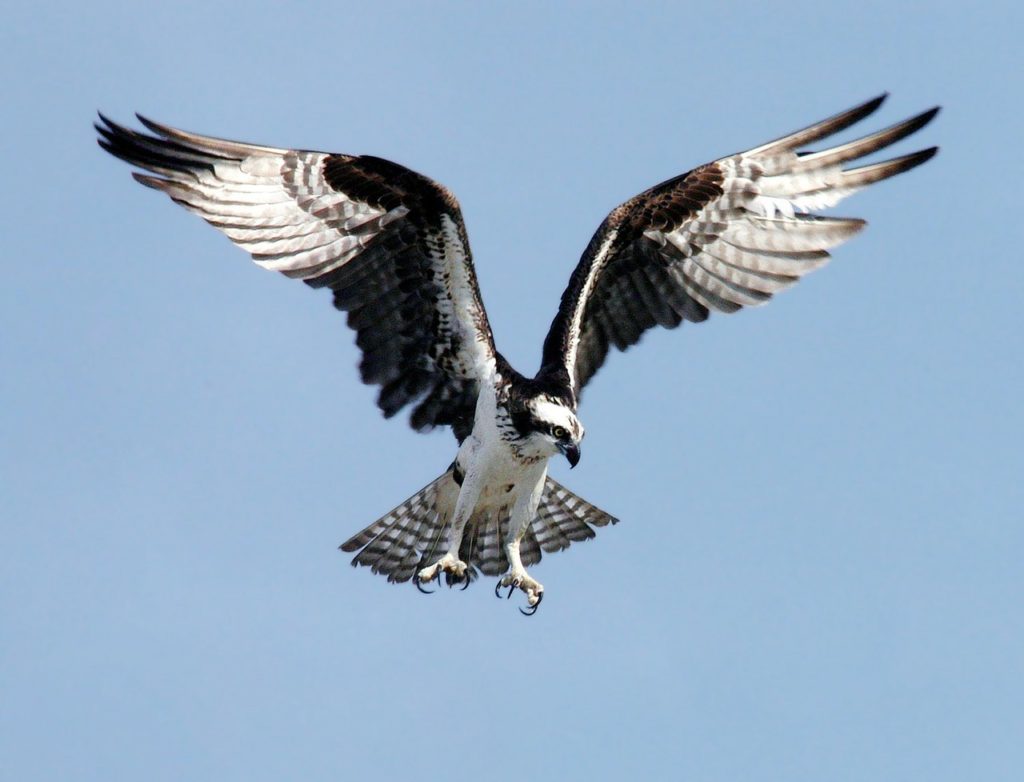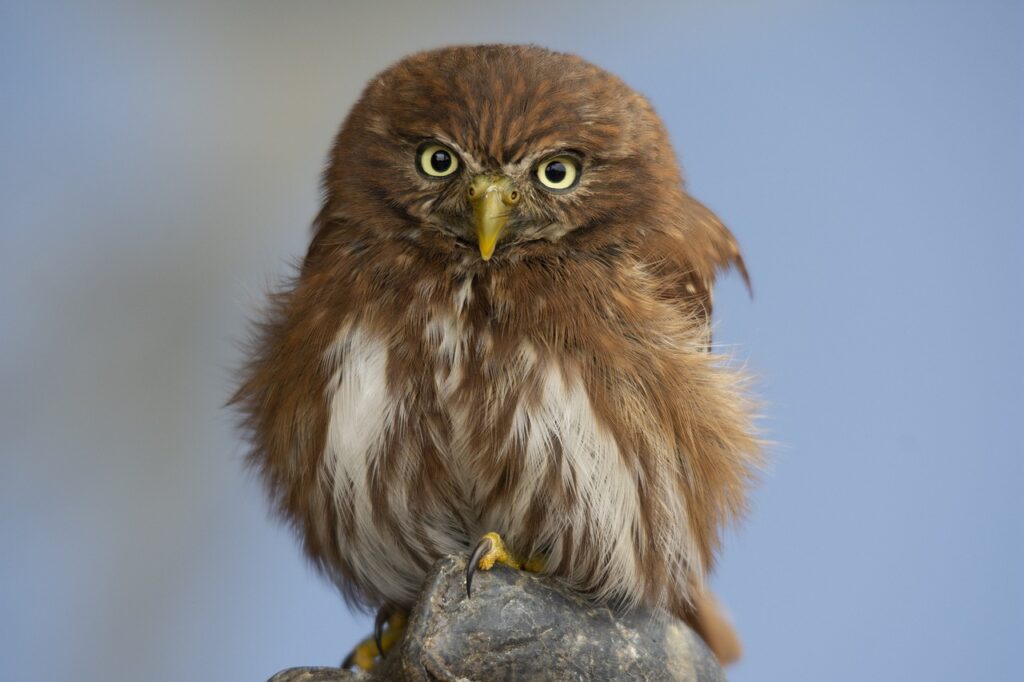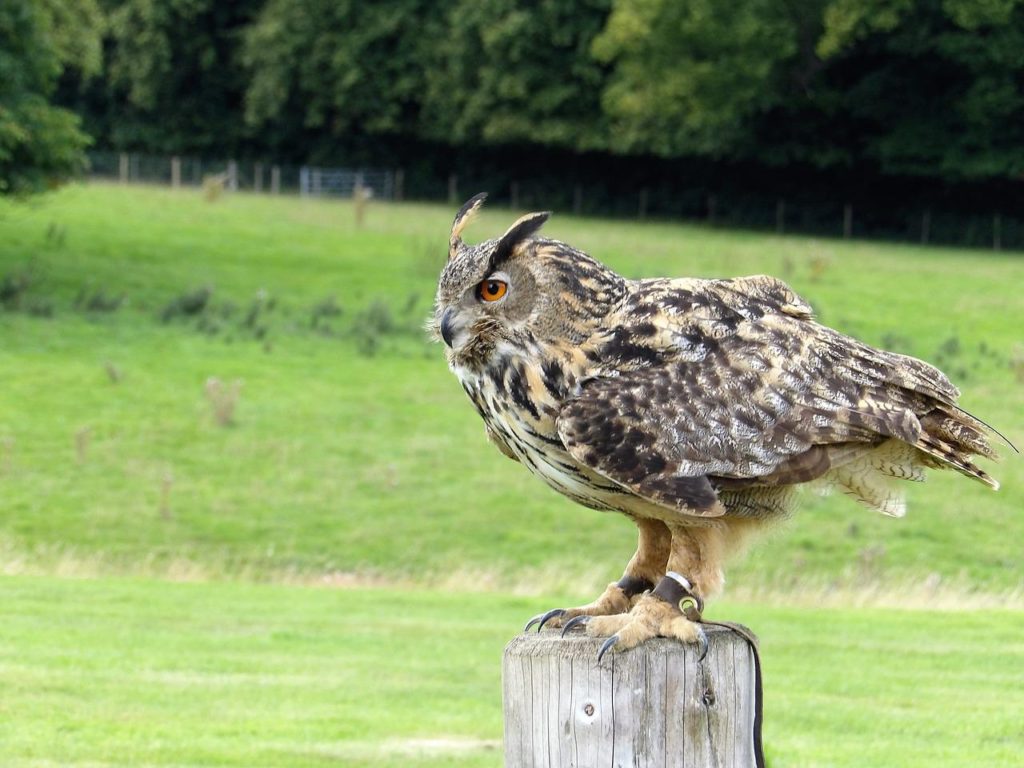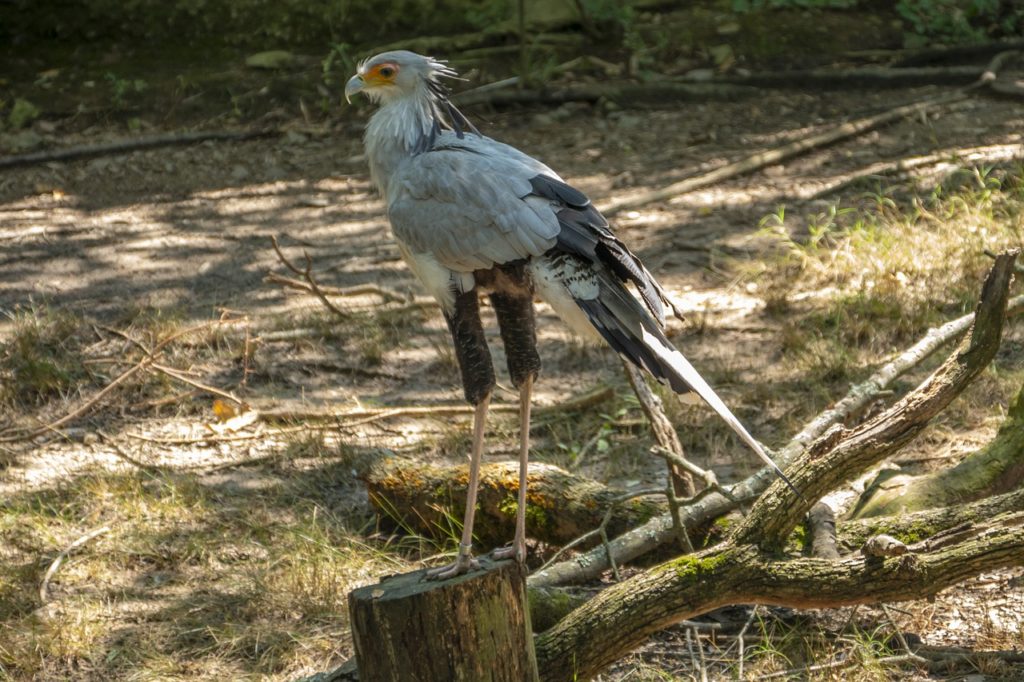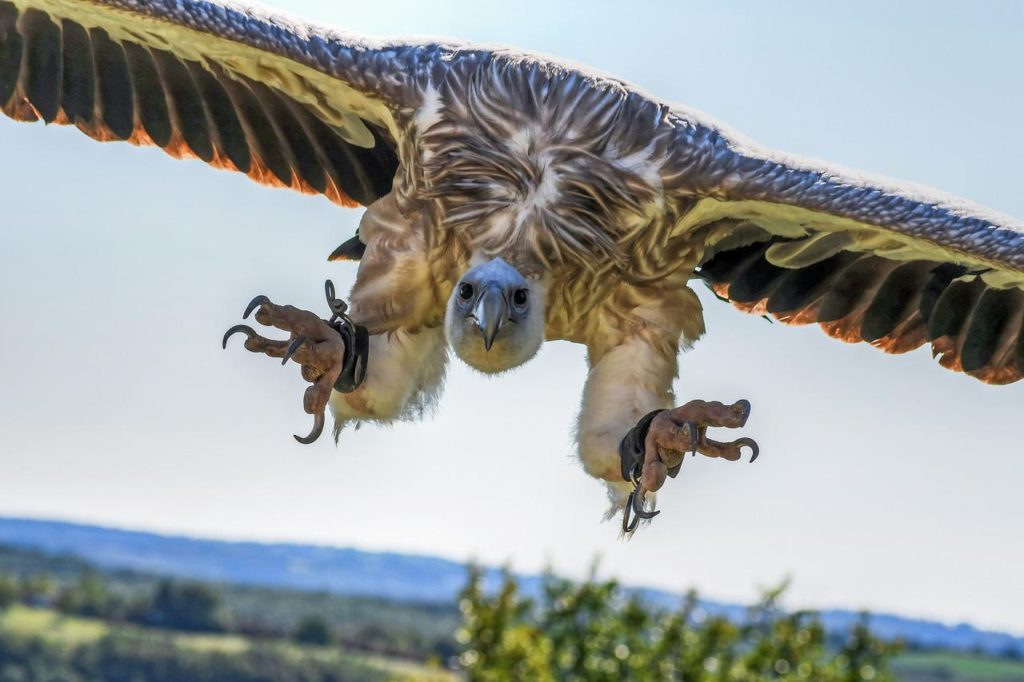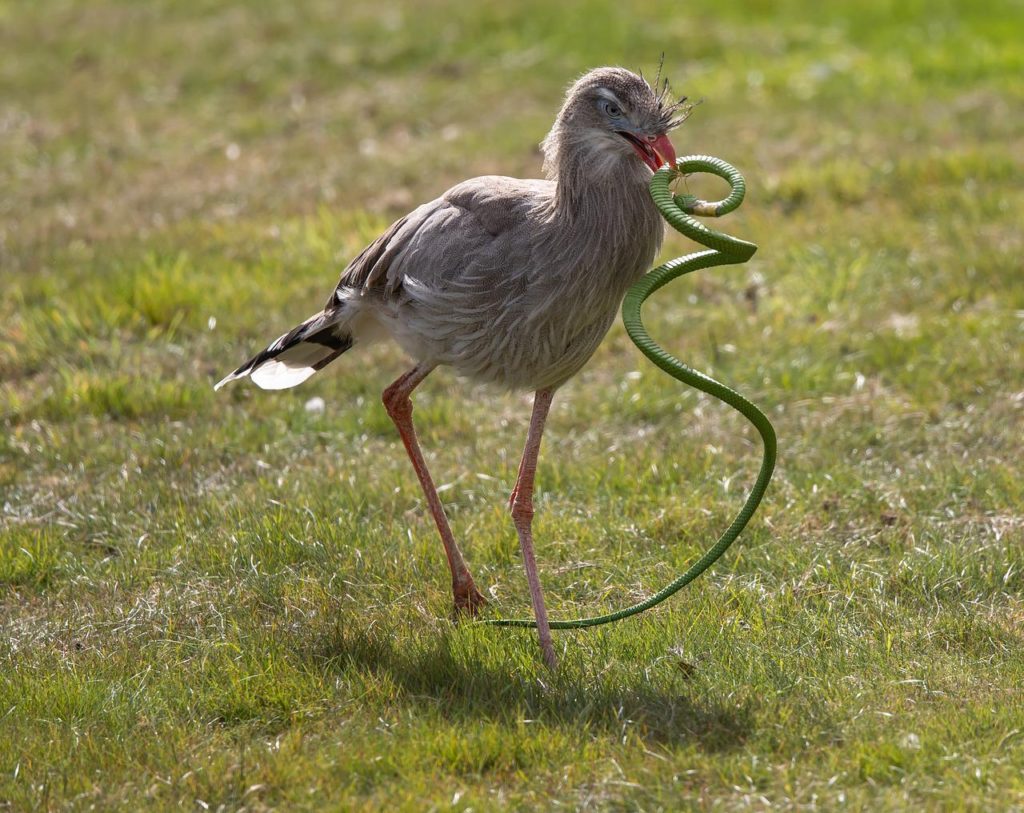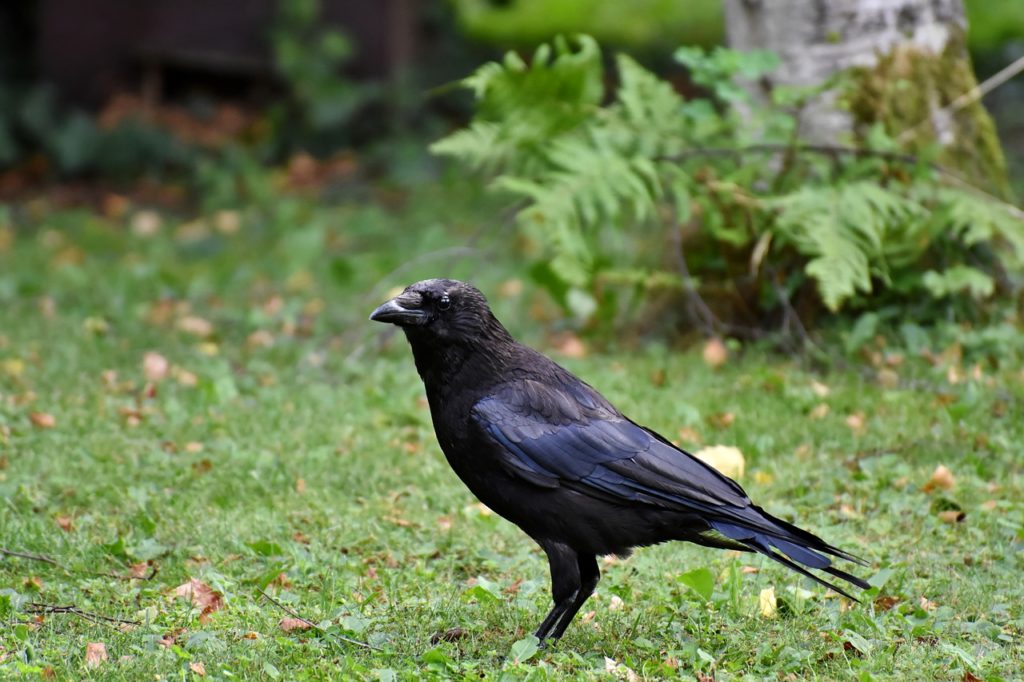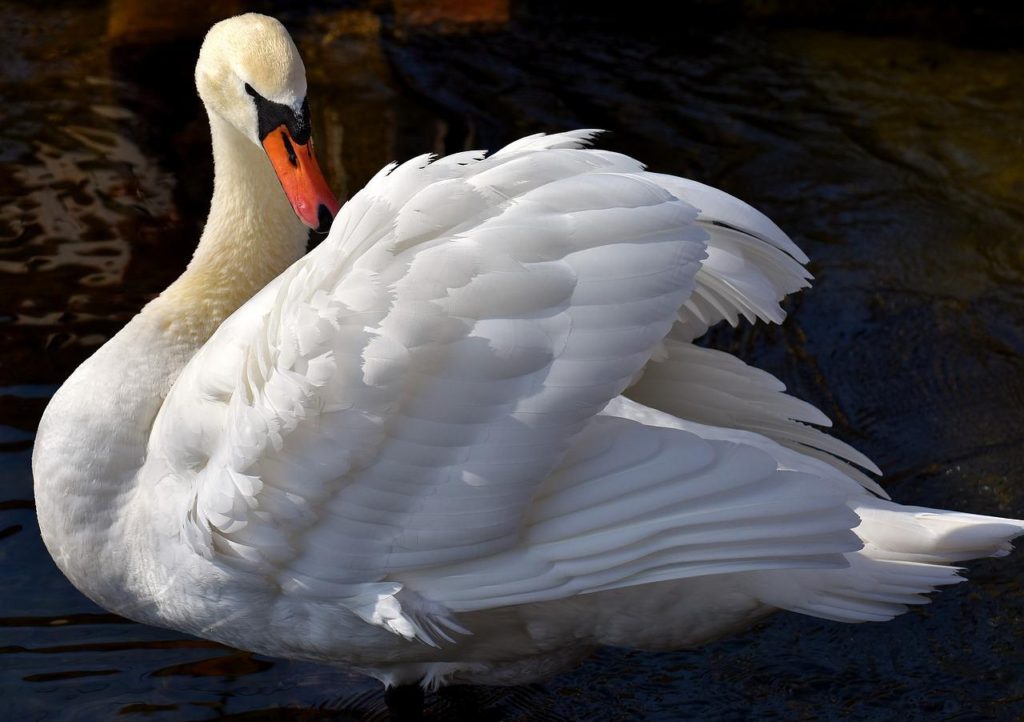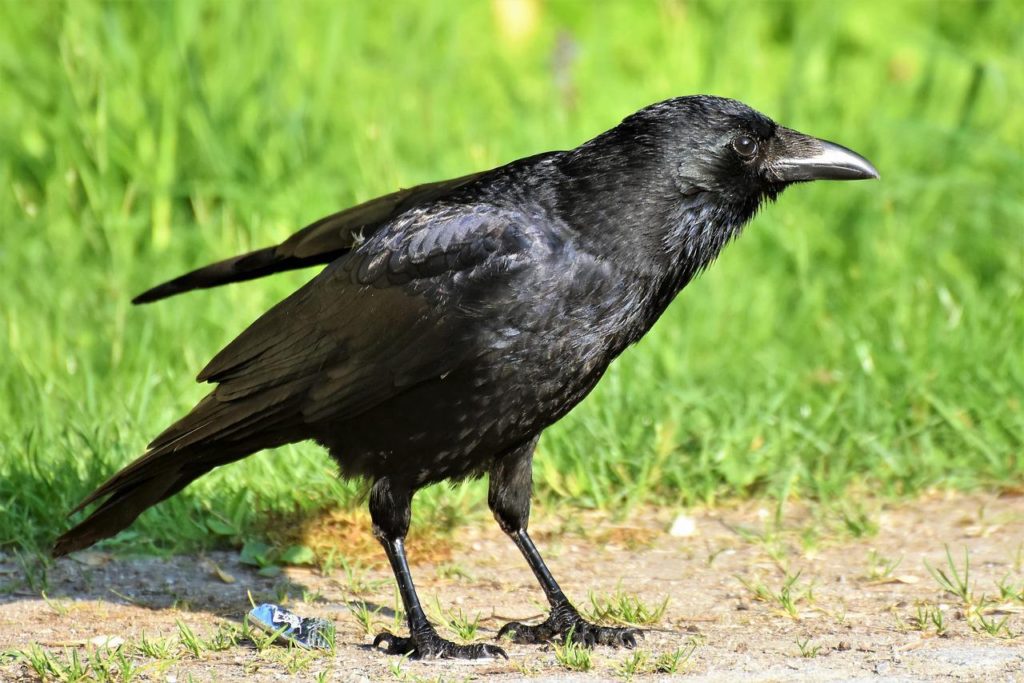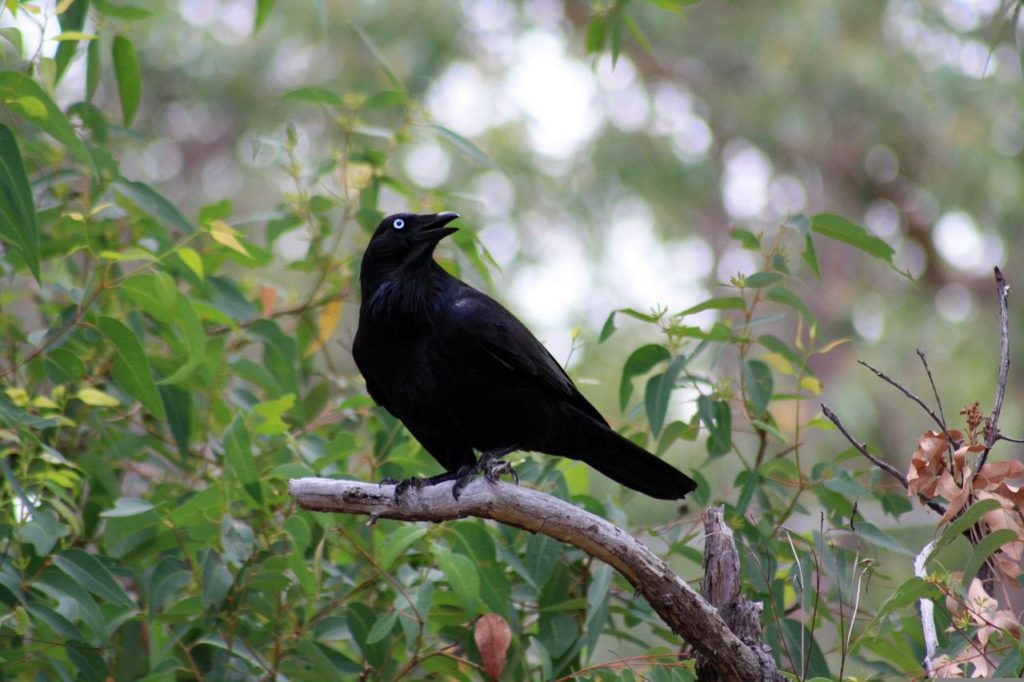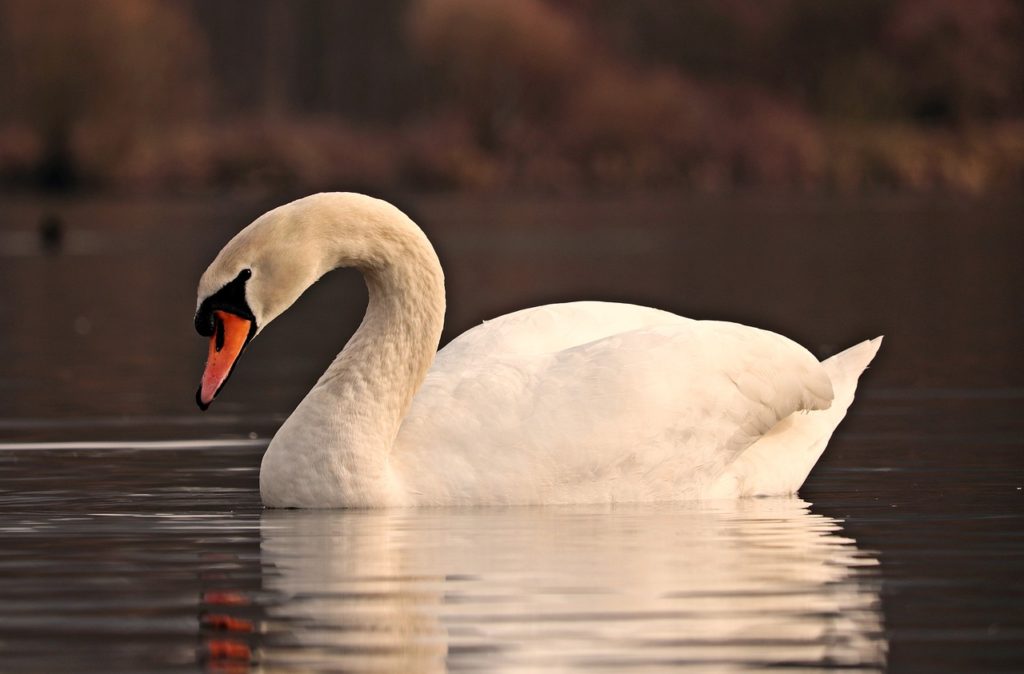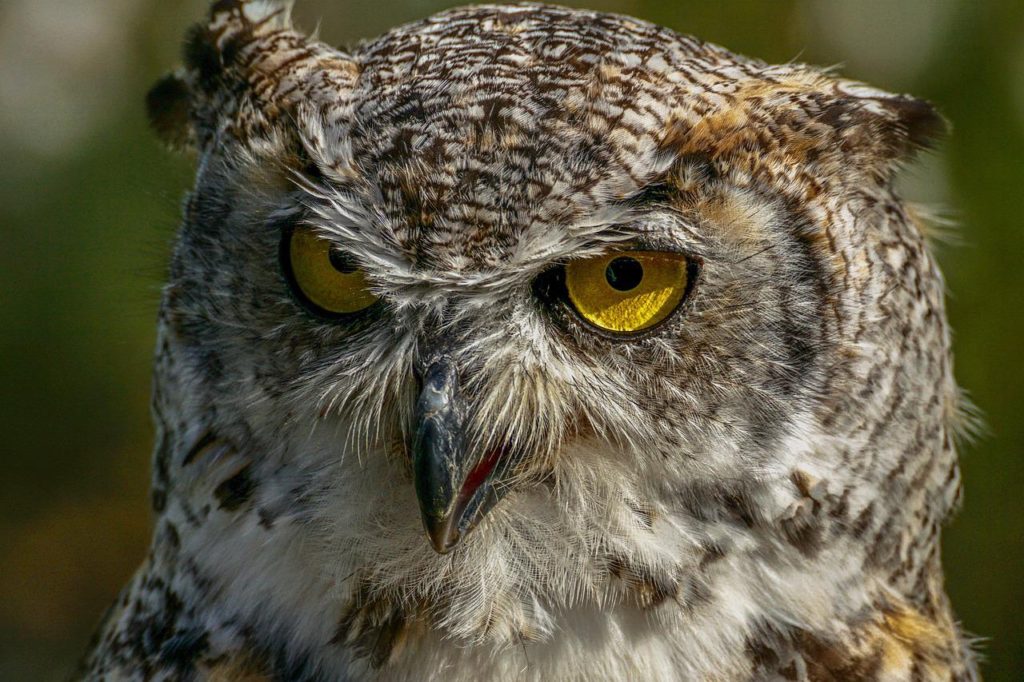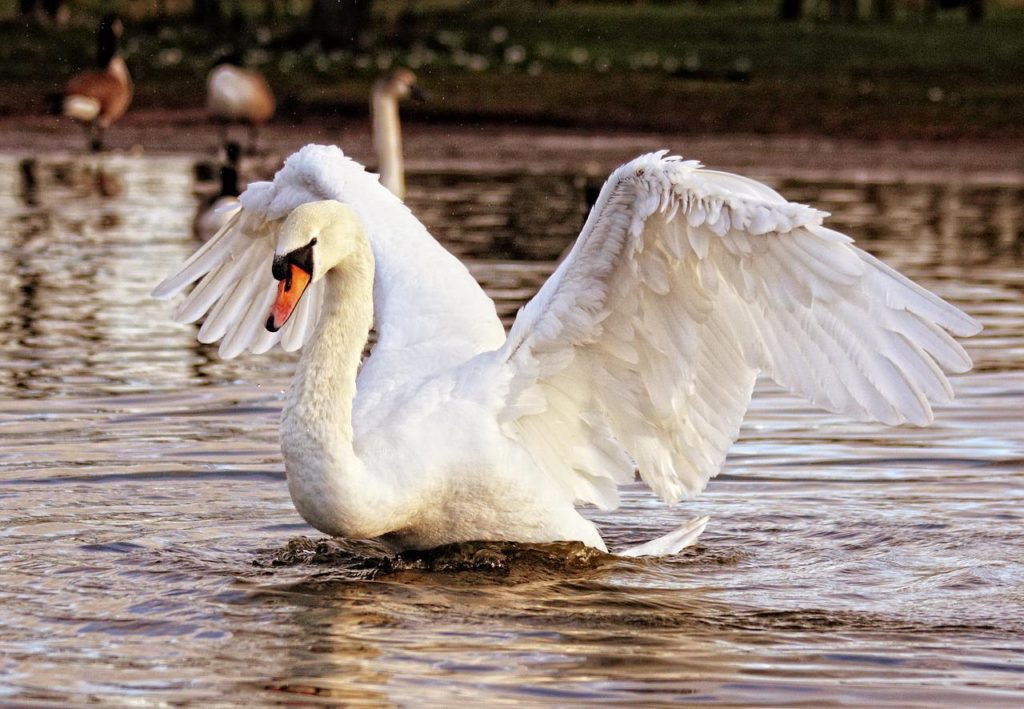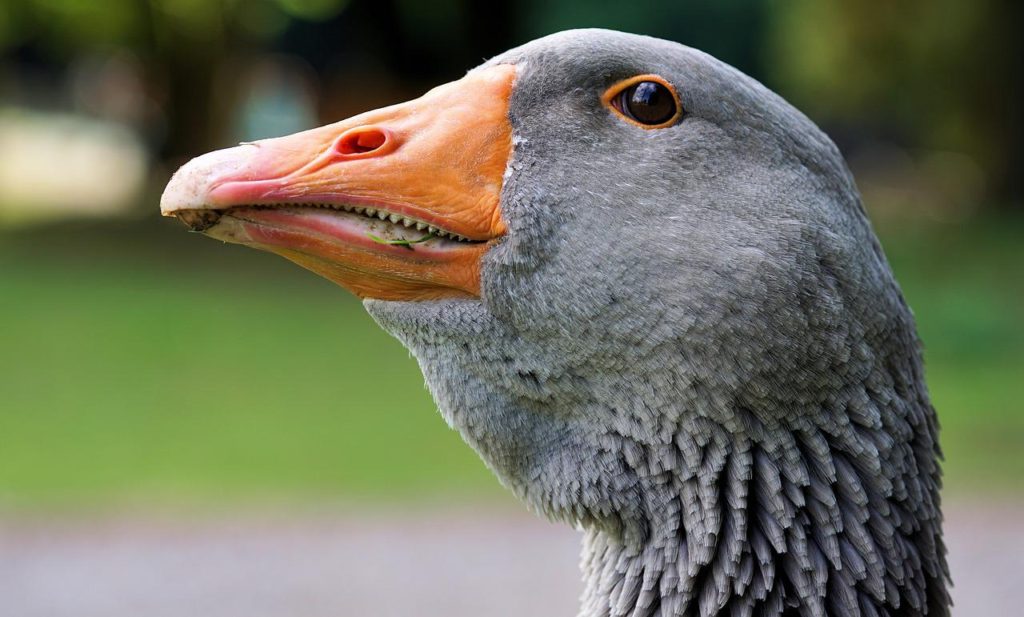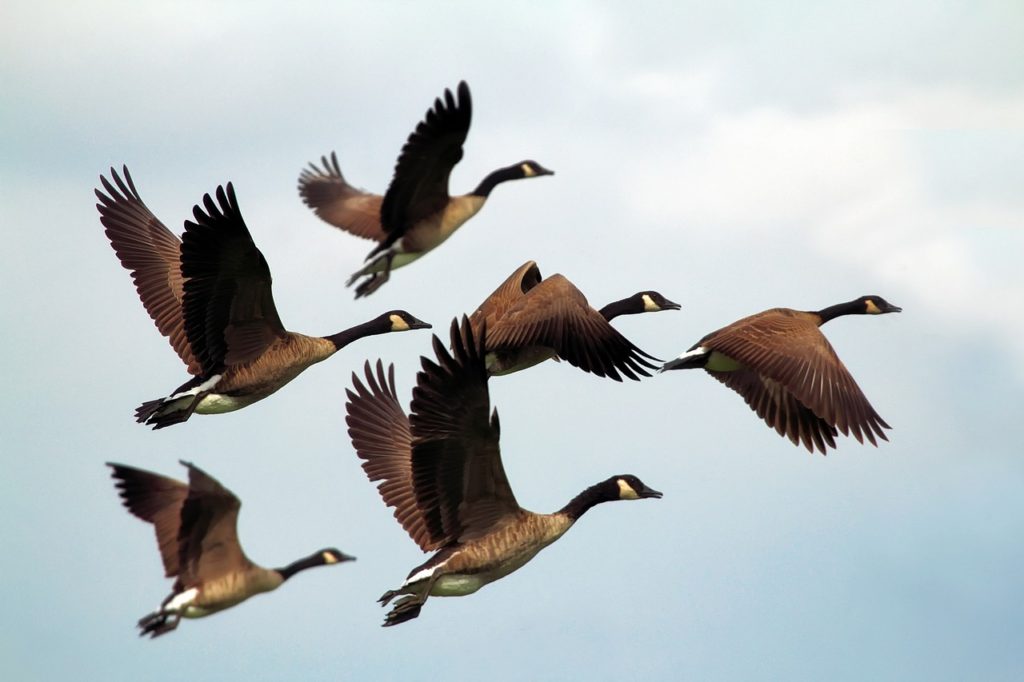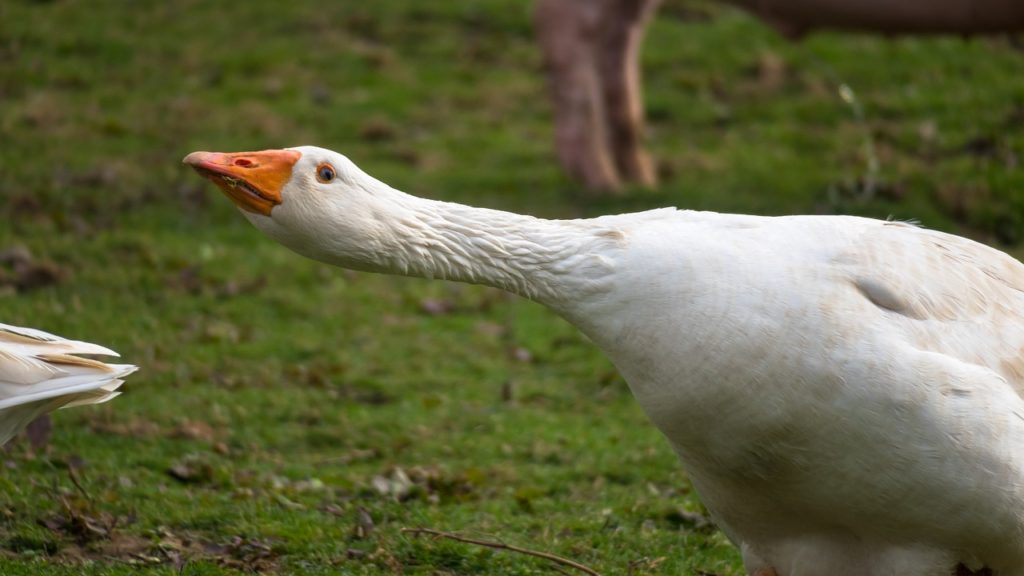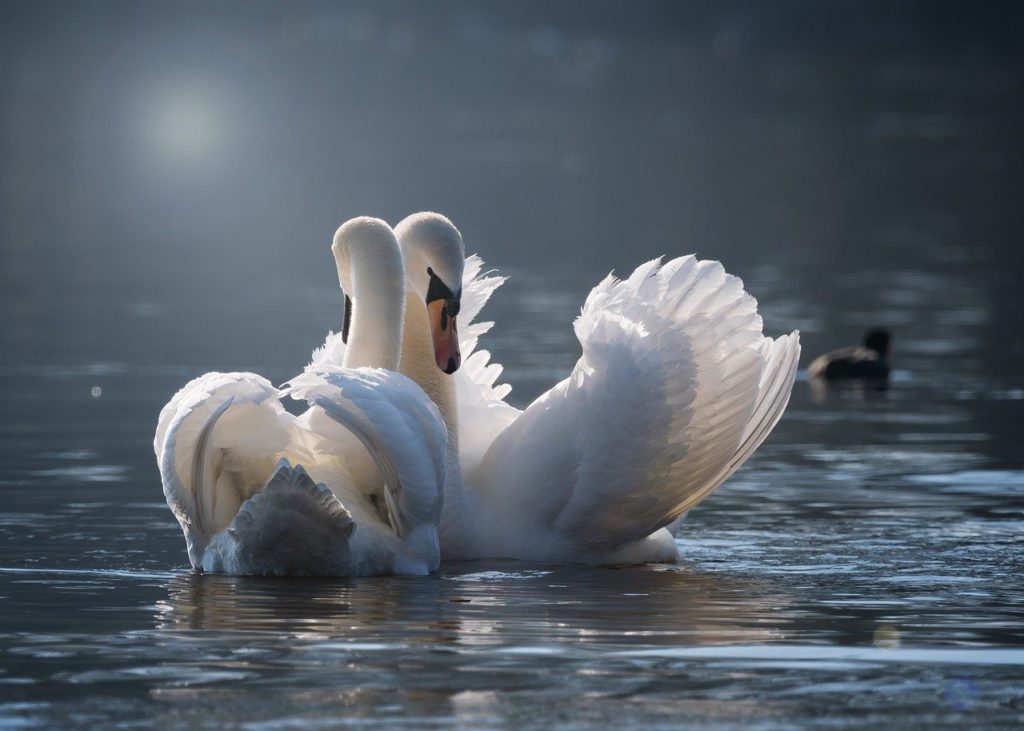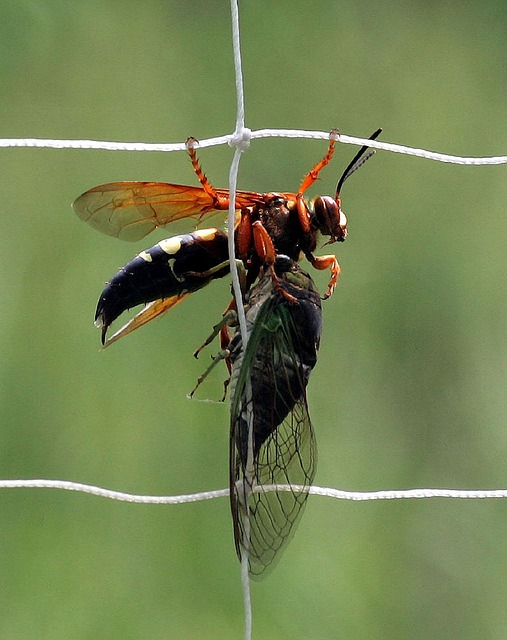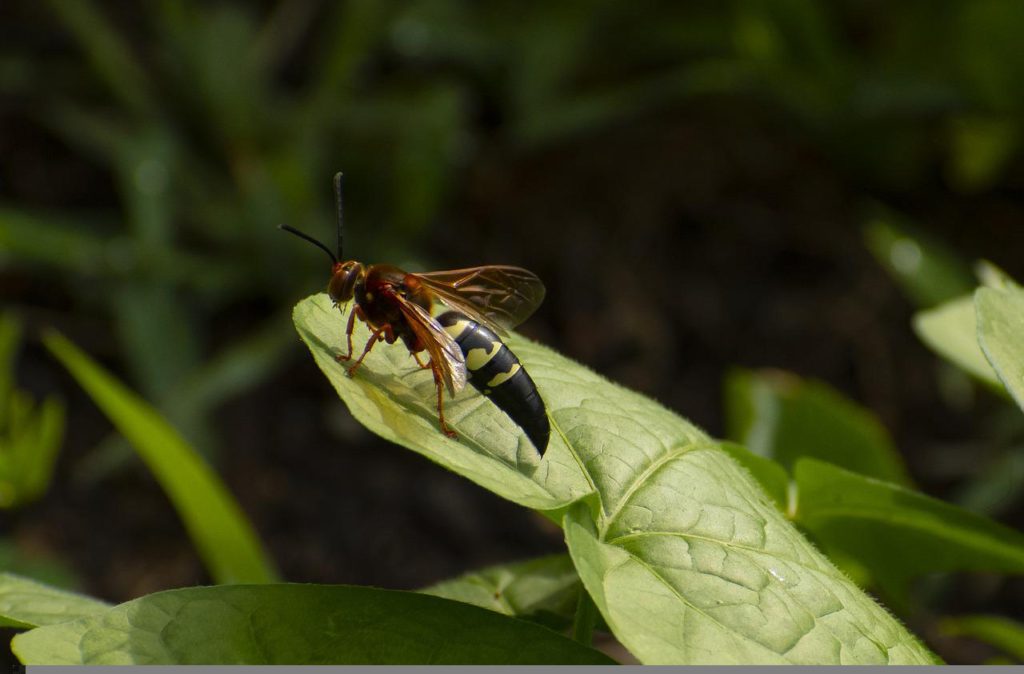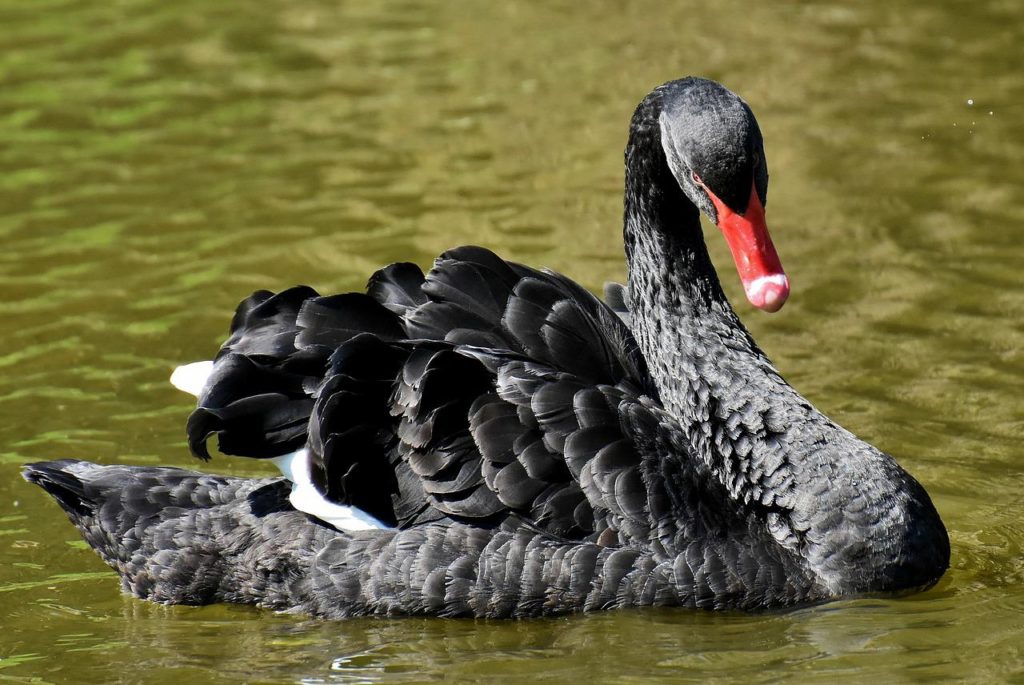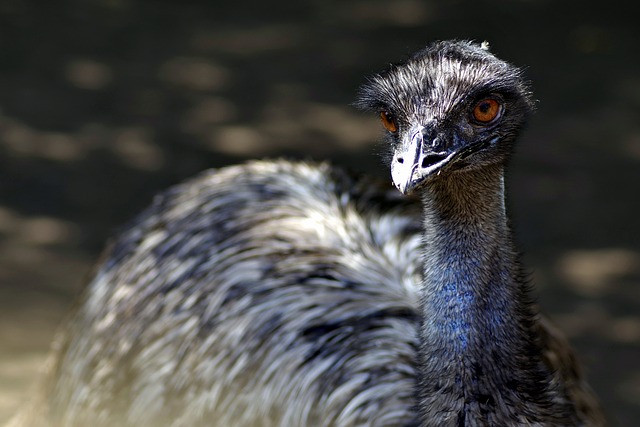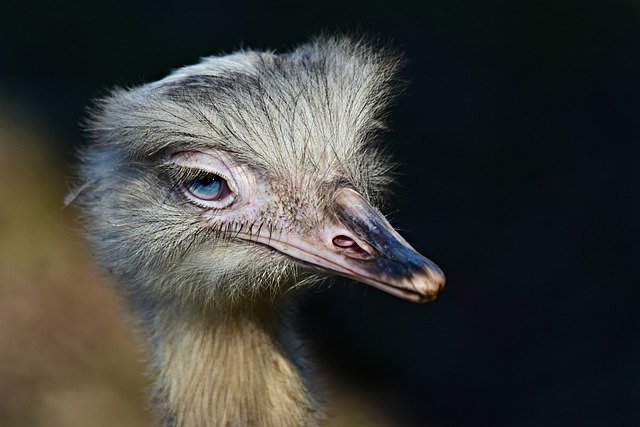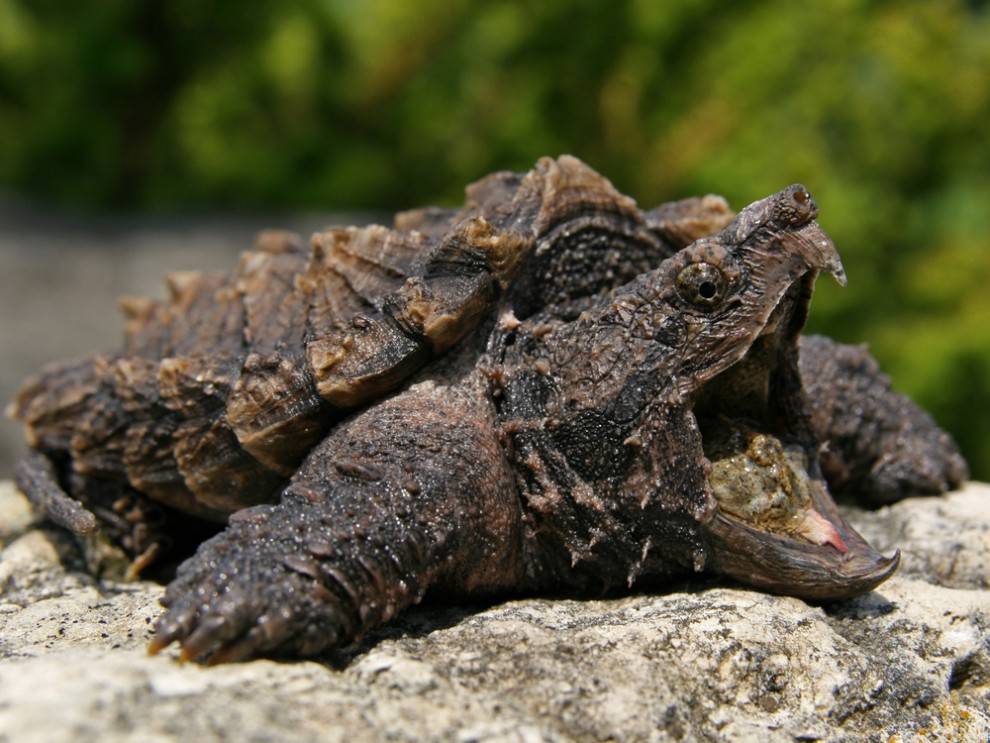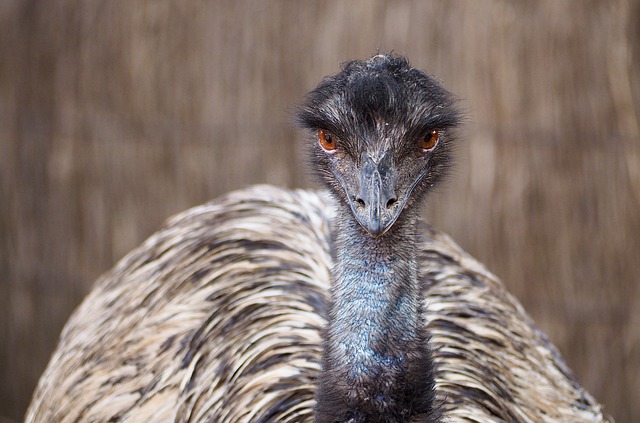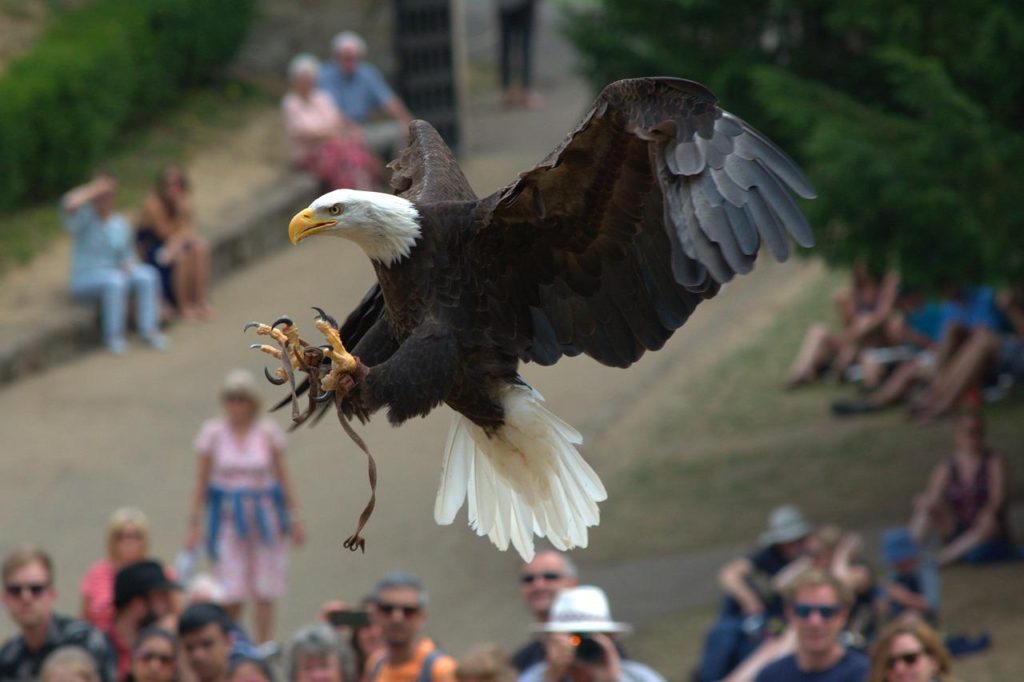
All birds have claws. However, only a few types have the scary-looking and dagger-sharp claws called, “talons”. So here are the birds with talons and what you’ll want to know about each of them.
What Are Talons?
Talons are the claws of a group of predatory birds known as birds of prey, also called raptors. Bird of prey talons are made of keratin the same substance as our fingernails and because they get worn with use, they grow for the entire life of the bird.
Talons are much bigger, stronger, and have sharper tips than the claws of others birds. They are used by birds of prey as their primary hunting tool, to help capture and kill their food. Talons come in various shapes and sizes depending on the species of bird and its specific prey.
Eagles
Eagles like most other birds of prey have 4 talons on each foot. They have 3 talons on their front toes that face backward and 1 talon on their back toe facing forwards (known as the hallux talon). The hallux talon is longer than the other talons and helps with gripping. It is also pushed through the body of the prey when it is caught which is why it is sometimes called the “killing talon”.
Prey is not typically killed outright by the talons but instead, the animal usually dies from massive blood loss or organ failure as the eagle eats it alive. Because they have massive feet and giant talons many eagles are capable of taking prey items that are quite large.
The harpy eagle has the largest talons of any bird on the planet. Their hallux talons can reach up to four inches in length. That means harpy eagle talons are the same size as grizzly bear claws and it allows these predators to hunt animals as big as monkeys and sloths.
Falcons
Falcons are fast-flying hunters. They mainly prey on birds and attack them in flight with a high-speed assault. The peregrine falcon is so fast that it is able to reach speeds of up to 200 mph or more when diving to catch its meals. Falcons strike their prey with their feet clenched like fists.
The attack can kill prey instantly or severely cripple it. After the devastating blow, the falcon often turns and catches the prey mid-air. If the bird is still alive after being knocked out of the sky the falcon will land and kill it with its beak. Falcon beaks have a tooth-like structure that helps them to quickly kill by severing the spinal cord or crushing the head of their prey.
Because they rely mostly on the force of their blazing-fast strikes for immobilizing their prey and their specialized beaks for killing they don’t have huge talons or exceptionally strong feet. Falcons are birds with talons that are modestly sized and set on long and slender toes.
This combination helps them to be able to penetrate a bird’s feathers with their talons while at the same time wrapping their feet around the bird’s entire body.
Hawks
While hawks range from small to medium in body size, they have large and powerful talons. These are intelligent and swift birds with excellent eyesight. Hawks locate and attack their prey using a range of methods such as sitting and watching from a perch, soaring high above, or attacking them in midair.
When attacking, the hawk’s talons are driven deep into the prey’s body usually killing it. Although hawks may also use their hooked beaks to finish the job. In North America, the most commonly seen hawk is the red-tailed hawk which is named for its red rust-colored tail that stands out against its mainly brownish plumage.
Ospreys
Ospreys are large attractive birds of prey that have a diet almost exclusively made up of fish. And these fish-hunting specialists are found near bodies of water all around the world. The Osprey doesn’t just snatch its prey from the surface as most other fish-eating birds do.
It plunges feet first into the water to capture fish. And it often totally submerges itself several feet under the water in the process. Ospreys have talons and feet that have unique characteristics for catching and holding onto those slippery fish.
Osprey bird talons are both long and large. And in addition, they have a reversible outer toe that allows the bird to use its talons to grip fish from all 4 directions. The feet are big under the toes there are sharp spines called “spicules”, that function as a non-slip surface.
Owls
There are over 200 different species of owls, and almost all of them are nocturnal. These birds have large forward-facing eyes that help their depth perception when hunting in low-light conditions. They also have special wing feathers that allow them to fly in total silence giving them a stealthy advantage over their prey.
Owls catch the majority of their prey on the ground where the odds of being able to kill their prey in a single blow are not very high. So their feet and talons have adapted mainly for gripping and restraining prey. Once they have made the catch, owls usually kill their prey by squeezing it to death and then swallow their meal whole.
They have short and robust toes and talons that are long, nearly all uniform in size, and less curved than those of other birds of prey. These adaptations allow for maximum grip strength without sacrificing reach. In fact, owls actually have some of the strongest bird talons in the world.
They have 2 talons that face backward, 1 facing forward, and 1 that can rotate and be used in either position. (Owls and ospreys are the only birds with this special foot configuration). This gives owls the ability to use their talons to fully encircle their prey when needed.
Owls are such efficient hunters of rodents that a single family can kill several thousand per year. For this reason, many people attract owls to their properties so they can provide natural pest control.
Secretary Birds
These are unique-looking birds with stilt-like legs, a body that looks like an eagle, and a crest of feathers on their heads. Different from the majority of birds of prey, the secretary bird spends almost all of its time on the ground where it stalks for its meals. These birds are known to walk up to 20 miles in a day or more in search of their food which includes small animals and snakes.
This is a bird with talons that kills its prey by stomping on it. The secretary bird is the only bird on the planet that stomps its prey to death and it is believed that its unusually long legs help it to generate the power needed to do so. Both the talons and toes are short yet strong including a powerful rear talon which is used to help kill prey. For protection against snake bites, secretary birds have thick scales on their legs.
Vultures
While vultures may occasionally feed on sick and dying animals, they are mainly scavengers. And their talons and feet are perfectly adapted for this function. Because vultures don’t hunt, their talons are not as sharp. Vulture talons are designed for holding their meal down (which is already dead so there’s no struggle) as they use their hooked beaks to tear out chunks of rotting flesh.
Some species like the black vulture may also use their talons when fighting with others members of their own kind over a feeding spot at a carcass. Having blunter talons also helps to make walking easier as vultures spend a lot of time on the ground when feeding.
While new world vultures such as the turkey vulture and black vulture are known for having relatively weak feet this is not true of all vultures, the feet of their cousins the old world vultures, are actually quite strong.
Seriemas
Seriemas are long-legged birds that live on the ground. There are two species the red-legged seriema and the black-legged seriema both of which are found in South America. Sereiemas are the only living ancestors of the extinct giant “terror birds”. They are omnivores that catch and kill rodents, lizards, insects, birds, frogs, and snakes including the venomous coral snake.
They are birds with talons that look very dinosaur-like. Seriemas have short yet incredibly sharp talons on their toes including one prominent sickle-shaped inner talon. The inner talon is sharper and more recurved than the others and is also raised up and held off of the ground. It is often compared to the similar-looking innermost claw of a velociraptor.
Because of its recurved appearance at first glance, you might think that the inner talon is used for slashing, however, the seriemas use it to grasp and pin down prey while they use their hooked beak to rip and tear away flesh. These birds are very fast runners and have been clocked at running over 40 mph.
Start Shopping for Birding Supplies!
What Are Crows Good For?
Crows are widely considered to be pests. However, these large and highly intelligent black birds actually serve quite a few important functions in the environment. So what are crows good for? Here's what you'll want to know. Pest And Parasite Management Crows are...
How Long Do Swans Live?
Swans are graceful and beautiful creatures and as such, people have many questions about them. They want to know about their mating rituals, their diet, their preferred habitats, and even their lifespans. How long do swans live for anyway? Swan lifespans actually vary...
Are Crows Good Pets?
People all around the world see and hear crows on a daily basis. Although these intelligent and dark birds are practically ubiquitous, most people don't think of them as being household pets. Are crows good pets? The general consensus is that crows do not make...
Are There Crows In Australia?
Crows are remarkably smart birds that also happen to be extremely adaptable. They navigate unfamiliar circumstances via observation and interaction. Crows reside in locations all over the globe. While they do not live in certain parts of South America, they do reside...
What Do Swans Eat?
Swans are famously long-necked birds that are symbols of romance, love, beauty, and purity. Since these waterbirds have so many admirers, people often wonder about their eating habits, behaviors, and more. What do swans eat, anyway? Swan Basics Swans typically live in...
Birds That Look Like Owls
Owls are typically solitary and mainly nocturnal birds. And although these well-known hooting creatures have a rather distinctive physical appearance, there are actually various other kinds of birds that resemble owls closely. And people sometimes mix them up. So...
Why Are Swans Protected?
Swans are graceful and gorgeous creatures. They also happen to have protection in the United Kingdom, interestingly enough. Why are swans protected there, anyway? And does the Queen own all the swans? Yes, she actually owns any mute swans that are unclaimed in both...
Birds With Teeth
Birds do not have teeth. However, there are quite a few that really look like they do! These birds have evolved special beaks which help them to perform important functions. So here are some of the most amazing birds with “teeth,” and what you’ll want to know about...
Do Geese Fly?
Although geese are clearly birds, there are many individuals who do not necessarily associate them with flying. So, do geese fly? The honest answer is that these waterfowl do. They do not exactly slouch in the flying department, either. Many people are pleasantly...
Are Geese Dangerous?
Geese, in brief, are waterbirds that are quite substantial in size. Since they're often spotted on golf courses, at schools, and in community parks, people understandably tend to wonder whether they're safety threats. Are geese dangerous? Why Geese Attack...
Do Swans Mate For Life?
Swans are famously elegant waterbirds that are known for their sizable bodies, webbed feet, and lengthy necks. People often associate them with romantic imagery and monogamy. Do swans mate for life? You can find the response to that common and rather fascinating...
When Do Cicada Killers Come Out?
Whether you dread them each year or are waiting for them to emerge and control the cicada population you may be wondering, “When do cicada killers come out? The answer is they come out each summer in late June or July. Here’s what you’ll want to know. Cicada Killer...
Are Cicada Killers Dangerous?
One look at one of these huge wasps buzzing around, your yard, and it’s only natural to ask, “Are cicada killers dangerous?” Fortunately, these wasps are mild-mannered. But here’s what you’ll want to know. Cicada Killer Wasps Basics Cicada killers emerge from the...
What Are Black Swans?
What are black swans? Black swans (Cygnus atratus) are sizable waterbirds. This species primarily appears in Australia's southwestern and southeastern portions. The black swan is nomadic in its homeland. This bird, true to its name, is mostly black. Although the bird...
What Do Cicada Killers Eat When There Are No Cicadas?
What do cicada killers eat when there are no cicadas? Well, while cicada killer wasps do hunt cicadas, the adults don’t actually eat them or kill them, their young do. Read on to learn more! The Cicada Killer Diet While you may have seen cicada killer wasps flying...
Do Cicada Killer Wasps Sting?
As one of the biggest species of wasp in North America the cicada killer wasp can be intimidating. And because of their size, appearance, and scary-sounding name, many people wonder, “Do cicada killer wasps sting? The answer is yes and no, and here’s what you’ll want...
Emu Facts
Did you know? One emu egg can make an omelet that can feed up to six adults. Did you know that the emu is the only bird with calf muscles? Can an emu walk backward? Let us find out by exploring some of the most jaw-dropping emu facts. Emus Have Amazingly Powerful Legs...
Rhea Facts
Doting dads, did you know the male rhea builds the nest, incubates the eggs, and takes care of the young? The rheas are paragons of parental care. It’s a bird like no other, and you will be surprised by the following rhea facts. Rheas Are One Of The Best Dads In The...
Alligator Snapping Turtle Facts
Flightless Australian Birds
There are over sixty species of flightless birds in the world. These birds have lost their capability to fly through evolution, and several of them live in the “land Down Under.” So here’s a list of all the flightless Australian birds. Emu The emu is a large...
